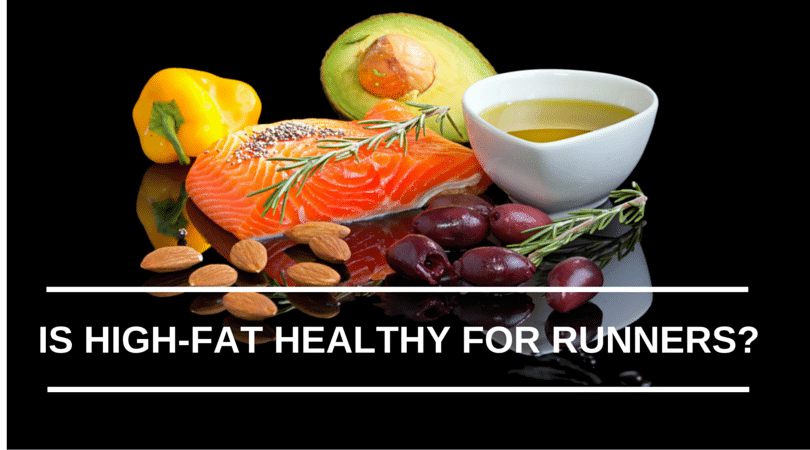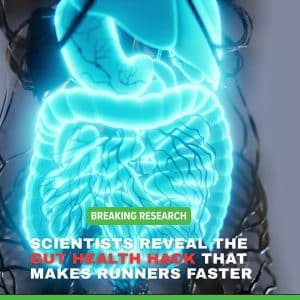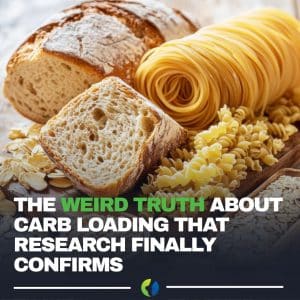Trends come and go in the running world. Often, it’s hard to tell what will stay and what will fall by the wayside.
Not many people are wearing Vibram FiveFingers anymore, but compression socks seem to have cemented themselves as a nearly-essential part of a runner’s wardrobe.
A new debate that’s caught fire recently is the health and performance benefits of a high-fat diet for distance runners.
If you are feeling lost in the wealth of articles that come out about diet and which is the best diet to consume to perform to your potential as a runner, let us find a way through the jungle, and share the results with you.
Today we are going to be focusing on a high-fat diet while limiting carbohydrates?
By the end of this article, you will know whether it is time to kiss goodbye to your pre-race pasta dinner, or keep them going for your body (and mind)!
Is a High-Fat Diet the Future of Distance Running?
Traditionally, exercise physiologists and nutritionists have recommended a fairly high amount of carbohydrates in your diet. The logic is fairly simple: distance runners burn a lot of carbs during training, and research has demonstrated that carbo-loading before a long-distance running event (like a marathon) is beneficial from a performance standpoint.1
Recently, however, another narrative has emerged.
In a 2014 editorial, physiologists Timothy Noakes, Jeff Volek, and Stephen Phinney argue that high-carbohydrate diets carry health risks, and that, given time, athletes can adapt to diets that are very high in fat and very low in carbohydrates.2
Here’s the deal:
The purported benefits are twofold: first, athletes on a high fat diet could avoid the health problems that might be associated with a high carb diet.
Second, changes in metabolism at the cellular level allow athletes on a high fat diet to burn fat at a much higher rate, which could be a huge advantage in endurance events—a “fat-adapted athlete”, the authors argue, could complete multi-hour training sessions or competitions without needing to ingest any external food sources.
Research behind the high-fat claims
These sound pretty impressive, but how much substance is there to these claims?
Even Noakes, Volek, and Phinney admit that research to date has been inadequate.
In an earlier review article, Asker Jeukendrup of Loughborough University in the UK points out that most studies on the effects of low-carbohydrate diets have been very small and of dubious quality.3
Indeed, even later studies, like a 2012 paper by researchers at the University of Rome that found that a low carb diet had no effect on 30min time-trial performance, still use small sample sizes—only six masters athletes, in this case.4
It get’s worse:
Other work by researchers at the University of Connecticut and The Ohio State University looked at the effects of a low carb diet in ultramarathoners. Since previous research has found that low carb diets decrease blood markers of inflammation in obese and sedentary people, the researchers hypothesized that a low carb diet might also decrease the well-known spike in inflammation following long distance running.5
A sizable group of twenty male ultramarathoners were selected, half of which habitually consumed traditional high carb diets, and half of which were on a low-carb / high fat diet (11 % of calories from carbs, 71% from fat, and 19% from protein).
After a three-hour treadmill run, blood samples were taken and analyzed for markers of inflammation. While the treadmill run did result in the expected spike in inflammatory markers in the blood, their levels did not differ between the high fat diet and high carb diet groups.
[bctt tweet=”New research struggles to find evidence that high fat diets are good for runners”]
Why are we still considering a high-fat diet good for runners?
Despite this, there is ample evidence that Noakes, Volek, and Phinney are correct on at least one one count—high fat diets do change cellular metabolism.
In his 2003 review article, Asker Jeukendrup cites numerous studies demonstrating that your body responds to a high fat, low carb diet by increasing its ability to mobilize and burn fat for energy during exercise.3
Unfortunately, Jeukendrup also points out that the contributions of fat to your energetic needs are negligible once you start running fast.
What constitutes “fast”?
Jeukendrup writes that, above 75% of your VO2 max, your body burns very little fat. For reference, marathon race pace is between 75 and 85% of VO2 max.
What does that mean?
So, a high fat diet might help stave off a need for refueling during long training runs and during ultramarathon races, but it won’t stop you from “hitting the wall” in a marathon race.
Jeukendrup notes that the long-term health effects of a high-fat diet in athletes are unknown, though Noakes, Volek, and Phinney would surely point out that the health risks of high carb diets in athletes are not known either.
What’s the bottom line?
As usual, we’ll have to wait patiently for the large, methodical studies that will eventually put these arguments to rest.
Until then, the only people who would appear to benefit from a high-fat, low-carbohydrate diet are ultramarathoners and Ironman triathletes, whose training sessions and competitions are long enough where burning more fat and less carbohydrates at moderate exercise intensities would offer a distinct competitive advantage.
[bctt tweet=”Ultramarathoners can benefit from high-fat diets; 27 high fat foods to start eating.”]
I am an Ultra-marathoner, What are the Best High-Fat Foods for me?
If you are covering those longer distances where you are running at a low enough intensity level for your body to burn fat for fuel, we are going to share the best foods you can add to your diet.
This does not mean you can go out and binge on fried chicken with hopes of burning it all off in your next ultra. Not all fats are created equal, and here are 20 foods that you could add to your diet without serious side effects (if consumed in moderation!):
- Almonds
- Walnuts
- Pecans
- Macadamia Nuts
- Cashews
- Pistachios
- Avocados
- Black Olives
- Dark Chocolate
- Chia Seeds
- Flax Seeds
- Pumpkin Seeds
- Sunflower Seeds
- Olive Oil
- Coconut Oil
- Butter (try to keep it grass-fed- did you listen to our podcast with Dr Gangemi?)
- Chickpeas
- Whole Eggs
- Full Fat Yogurt
- Parmesan Cheese
- Cream Cheese
- Beef (Grass-Fed if possible)
- Salmon
- Trout
- Mackerel
- Sardines
- Herring
Make sure you speak to a doctor before making any major changes to your diet, but if you do try cutting those carbs in favor of a high-fat diet, let us know how you get on in the comments. Your feedback may be what other runners need to make a change that might help them feel better in their running and life!
[bctt tweet=”27 high fat foods to increase your fat consumption in a healthy way.”]






3 Responses
John, thanks for the good informative article. I recently completed my first marathon in November 2015 (Richmond). I am a masters runner (age 59) and was targeting a time of 4 hrs 30 min based on my half marathon time of 2 hrs 8 min. During training, I found that in long runs greater than 15 miles the last couple of miles were really tough. My marathon pace runs up to 10 miles long were doing fine, but I was hitting the wall in the long training runs no matter how slow the pace. I felt like if I didn’t make some changes I was going to end up walking the last 6 miles of the marathon.
After some research I ended up doing two things – the first was adopting a run-walk strategy (4 minutes running, 1 minute walking). That helped immediately during my long training runs. The second change was to fat load before the race. I was convinced to try that by an article titled “The New Rules of Marathon Nutrition” by Matt Fitzgerald (Nov. 2013). The article recommended fat loading for 10 days followed by 3 days of carbo loading in the two weeks prior to the race. The article cited research and seemed to make sense so I tried it. I ended up completing the marathon just under my 4 hr 30 minute target, although I did still have some muscle cramping during the last 2 miles. I think the run/walk strategy probably deserves most of the credit for my successful outcome but I would be interested in your opinion on the effectiveness of fat loading before a marathon but otherwise keeping the traditional high-carb diet during training.
It has nothing to do with distance and everything to do with your anaerobic threshold. If you run so fast that you burn your store of sugar then you better fuel with more sugar. If you run slow enough that your body can make use of the plentiful fat stores most of us have then that’s what you will use :).
Thanks for the info. I read everything I can find about the hflc diet (high fat low carb) I can find. I started this diet over a year ago and I feel great. It is very easy for me to keep my weight stable and my energy level has never been higher. I ran my first marathon last september in Berlin in 3:52 (I started running seriously a year before that and I’m 47 years old). Over half of the race my heartrate was in zone 4! I only drank some water and a little bit of Superstarch during the race. For breakfast I had some eggs, bacon, sausages, cheese, butter and coffee with coconut oil. I hope to run my next marathon in Rotterdam next spring and I hope to be a little bit faster. Food- and drinkwise, there’s nothing I will do differently.